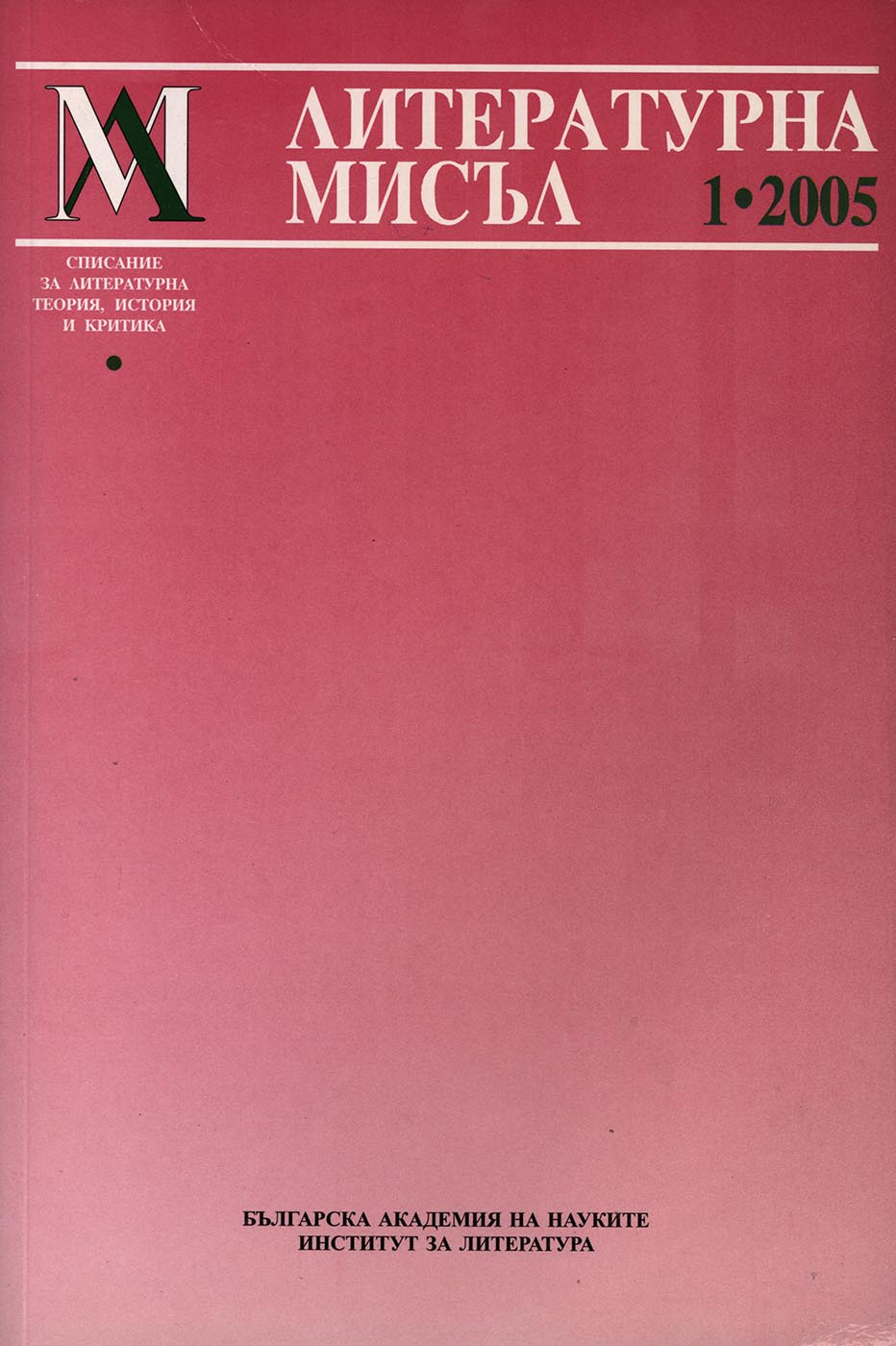"Погърчване" и "поевропейчване" през Възраждянето
‘Hellenization’ and ‘Europeanization’ in Bulgaria during the National Revival Period
Author(s): Raymond DetrezSubject(s): Literary Texts
Published by: Институт за литература - БАН
Summary/Abstract: During the National Revival period, Bulgarians came into contact with the West and created for themselves an image of the Occident mainly through the intermediation of the Greek economic, social and intellectual elite. Although criticism was as a rule embedded in general benevolence and even enthusiasm for the West-which was perceived as an alternative to Ottoman autocracy-, it appears that obviously as a result of the increasing reluctance with regard to Greek language and cultural influence, some Bulgarians were inclined to reject Europeanness together with Greekness. There is evidence of such an attitude in, for example, Dobri Voynikov’s well-known comedy Krivorazbranata civilizacija (The Phoney Civilization, 1871), in which the Greek Margaridi, representing Western lifestyle and moral values, is the object of vicious satire. In our contribution, we will go deeper into this embarrassing relationship between Hellenization (as an aspect of urbanisation) and Europeanization (in the sense of adopting the moral values of Enlightenment), paying attention also to the question to what extent Hellenization was rejected because of the incompatibility of Enlightenment with the traditional moral values imposed by religion and the patriarchal society.
Journal: Литературна мисъл
- Issue Year: 2005
- Issue No: 1
- Page Range: 7-19
- Page Count: 13
- Language: Bulgarian
- Content File-PDF

